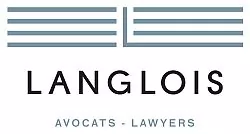In its decision in Groupe-conseil Génipur inc. v. 9160-0569 Québec inc. (a real estate promoter), 2015 QCCS 3052, the Superior Court of Québec dealt with the claim of the latter (the "Promoter") against engineering firm Groupe-conseil Génipur inc. ("Génipur") for a cost overrun it was forced to incur for the transportation of excess excavated material from a construction site. Superior Court Justice Claudine Roy found that Génipur repeatedly breached its duty to adequately inform and advise the Promoter and rendered a very harsh judgment against the firm, going so far as to hold that it had an obligation of result under the agreement it had entered into with the Promoter, which contained no provision regarding the costs of transporting excavated material from the site. In other words, the absence of the anticipated result (no costs for transporting such material) gave rise to a presumption of fault on the part of Génipur in drawing up the plans and specifications. Thus, one of the principles that emerges from the decision is that a service provider must be fully transparent with its client and has an obligation to inform it of any factor that could have an impact on the completion of the work at the agreed-upon price.
The facts of the matter are as follows: 9160-0569 Québec inc. had acquired various vacant lots from the city of Sainte-Catherine with the intent of constructing a number of residential housing units. The project required the installation of municipal infrastructure, and the Promoter retained Génipur to prepare the plans and specifications for that purpose. The Court noted that upon Génipur obtaining the contract, the Promoter informed it that it wanted to avoid any costs associated with the removal of excavated material from the site, and Génipur drew up the plans and specifications accordingly. In the course of the construction work, it became apparent that excess excavated material could not be used on the site and that transportation costs would have to be incurred to remove it. In fact, a misunderstanding between the parties concerning the term "surplus excavation" and how the site was to be graded appears to have been what led to the disputed transportation costs that the Promoter was forced to incur, which amounted to a total of $178,306.70. The Court ordered Génipur to pay that amount to the Promoter.
What is important to take away from the judgment is that a service provider must be sure to explain to the project owner all of the imponderables that could impact the agreed-upon price for the performance of the work. We feel that this judgment is overly harsh for the engineering firm, considering that no clause of the contract dealt with the costs associated with excavation and no budget for the work had been prepared by Génipur. In light of this decision, the addition of a limitation of liability clause for cost overruns would be advisable in order to avoid liability for going over budget.
The content of this article is intended to provide a general guide to the subject matter. Specialist advice should be sought about your specific circumstances.

